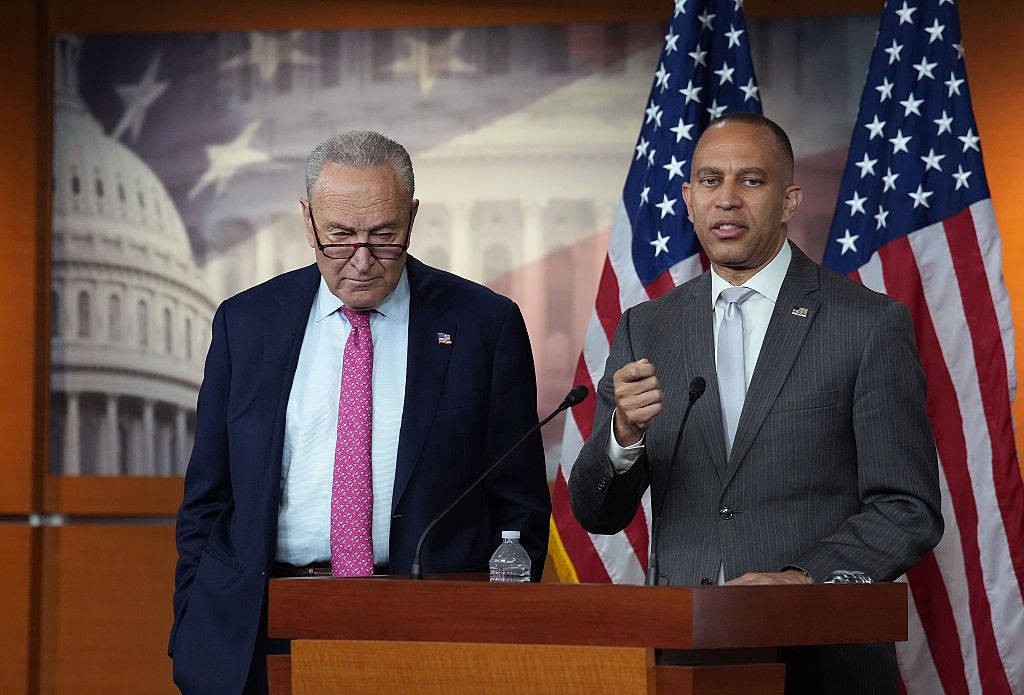If the latest fundraising numbers are any indication, an ongoing identity crisis is continuing to take a toll on the Democratic Party. According to federal reports, the Democratic National Committee (DNC) has pulled in almost $70 million so far this year, while the Republican National Committee (RNC) has raked in over $96 million. The disparity is even starker when looking at cash in the bank: with just over $15 million on hand, the DNC has a fraction of the RNC’s nearly $81 million war chest.
After their across-the-board defeat in November 2024, Democrats still seem at a loss. Wary of the political backlash to the Great Awokening, they’re reluctant to double down on “wokeness” — but equally hesitant to break cleanly from the dogmas of 2020. For his relatively tepid comments about gender and identity politics, Massachusetts Congressman Seth Moulton has now garnered a primary challenge — a warning to other Democrats who question the progressive party line.
Compounding this messaging paralysis, the party is also torn between the Boomer-led political establishment and a political insurgency that fuses socialist branding with Left-wing identity politics. DNC vice-chair David Hogg was recently forced out of his position because of his plan to escalate that civil war by funding challengers to Democratic incumbents. The recent mayoral primary victories of Zohran Mamdani in New York City and Omar Fateh in Minneapolis demonstrate the political potency of this insurgency, particularly in heavily Democratic areas. The risk of being knocked off in a primary by one of these insurgents makes it even harder for elected Democrats to distance themselves from their past unpopular positions.
This political standoff has helped taint the Democrats’ brand. A recent CNN poll found Democrats have a historically low approval rating, with only 28% of voters approving of the party. Moderates might fear that the party has swung too far to the Left on many issues, but the activist base might be frustrated with the party for not being progressive enough. Sure enough, 41% of self-described “liberals” in that CNN poll thought that most Democratic members of Congress did not deserve to be reelected. Barely two-thirds of Democrats even had a favourable opinion of their own party.
In contrast to that identity crisis, Republicans remain unified around the figure of Donald Trump. A remarkable 83% of Republicans had a favourable opinion of their party, and almost 80% thought that most Republican members of Congress should be reelected. That Republican unity is a crucial context for understanding these fundraising numbers. In all of 2017, the DNC raised only $67 million. At $70 million so far this year, the party has already exceeded its fundraising for the initial year of Trump’s first term. But Republicans have also roared ahead; the RNC seems easily on track to surpass the $132 million it raised in 2017.
Despite providing fuel for the daily take-cycle, money is far from everything in American politics. The massive RNC fundraising advantage in 2017 did not translate to Republicans’ keeping the House in 2018. Midterm elections are traditionally a referendum on the party in power, so voters’ doubts about the Democratic Party at the moment might fade in the voting booth next November. To push back against this dynamic, Republicans are likely to try to keep the focus on divisions within the Democratic coalition, and this cash advantage will give them some ammo in that long-term branding battle.











Join the discussion
Join like minded readers that support our journalism by becoming a paid subscriber
To join the discussion in the comments, become a paid subscriber.
Join like minded readers that support our journalism, read unlimited articles and enjoy other subscriber-only benefits.
Subscribe